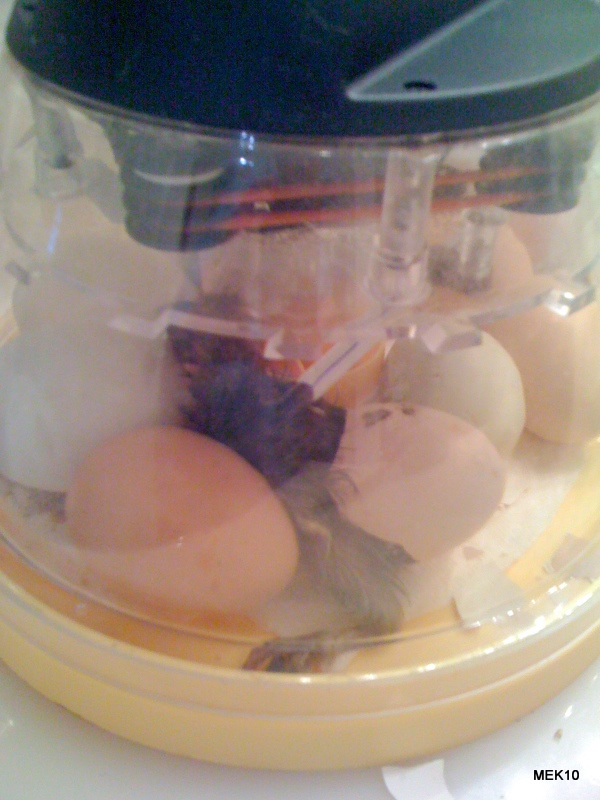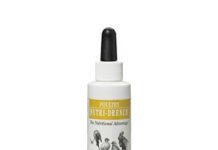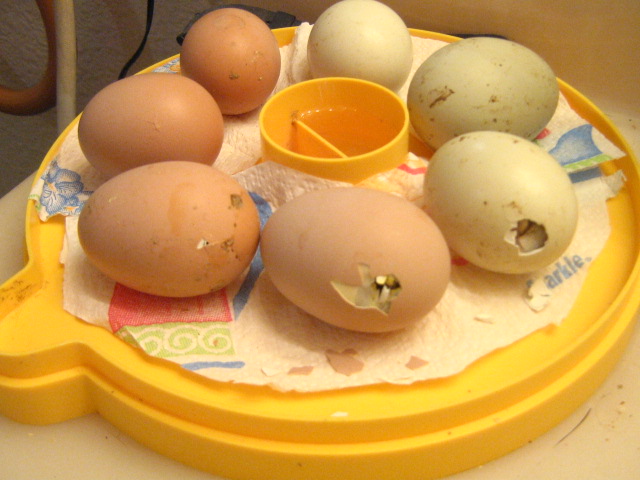We recently had cause to dispatch one of our cockerels – we do have some complaints about noise and can keep one or at best two – and upon examining the bird in question, were shocked to discover that he was suffering from sour crop.
In 15 years of poultry keeping, I had not come across this disease before, and hastened to http://www.poultry.allotment.org.uk to do some research:
Sour crop is caused when the crop doesn’t empty fully overnight and as a result the food ferments within the crop causing a fungal infection.
You can identify sour crop by checking the crop before the bird eats in the morning and if it is sour crop the crop will be watery or squishy like a balloon and if you open the bird’s beak a foul smell will emanate from it
What had happened was that I had decided to fold a trio of birds, in a moveable ark, over areas of my vegetable garden which were not in use, to clean and fertilise the soil. Sounds like a great permaculture idea, right?
Well, yes – but for the fact that the areas in question had unfortunately become quite dense with one of our real perennial problem weeds – couch grass. To you and me, that’s just long, tough, age old grass, growing out of control.
The site advised me that ‘long grass should be cut down as this can compact in the crop and stodgy foods such as bread and pasta should be fed sparingly as treats as these can also cause a compaction in the crop.’
Whilst this bird was due for humane dispatch, I realised that had this been one of my prized breeding flock, I would be none the wiser. So I wanted to look further into the condition.
The treatment advocated by http://www.poultry.allotment.org.uk was as follows:
To treat sour crop if it develops you should start by holding your chicken upside down with the head away from you and gently massage the crop from bottom to top so that the fluid is released.
Once this has been done mix some natural (live) yoghurt into the layers pellets or mash and feed this to the bird along with water mixed with apple cider vinegar as described below throughout the day.
You will probably need to repeat this over three days until the crop stops filling and the bacteria in the crop returns to normal. In the event the problem persists for more than a week seek a vet’s advice as a course of anti-fungal medicine may be required.
It also mentioned giving Apple Cider Vinegar, and elsewhere I saw garlic recommended. The key to prevention – adequate supplies of grit to ensure good crop health, and try to avoid fermenting of built up grass, or other over bulky material.
From my point of view, in my armoury should sour crop occur again, I will certainly have both garlic and ACV – however I am thinking I might add some raw goats’ milk to the chickens’ food on a regular basis, to keep the flora healthy, and try to avoid this state of affairs arising. Plenty of grit is to be provided as well – it’s easy to forget the grit, as the birds often go through it quickly and leave the tray empty or overturned, and on our chalk subsoil, they will soon be lacking.
The other treatment I am in love with for fungal and bacterial complaints is Grapefruit Seed Extract, a powerful natural anti biotic which has whooped an infected root canal in the writer, and easily clears up fungal mouth infections, and anything on the skin. A few drops in the water drinker now and again should aid crop health, I think, so I will give that a go.
A caution about GSE though, I am careful never to give it unless I can adequately rebuild the flora with a good supply of unpasteurised milk, or yoghurt.
I am now keeping a close eye on the grass in the orchard where our mamas and chicks are housed, and will be mowing and raking (or bringing in a sheep or two) if it starts to look long.












Great information!
My husband, who is the superior researcher in this farm family, has always warned me to keep a close eye on our chicken’s crops for this very reason. I do, but this is a useful reminder to all of us to keep vigilant especially if they graze on long grass from time to time. Thank you for the article!
Woa, I didn’t know this. All the chicken books I’ve read didn’t share this information. I am printing this up for my own customised chicken book (a folderful of articles!) thnx!
Thanks for this article!